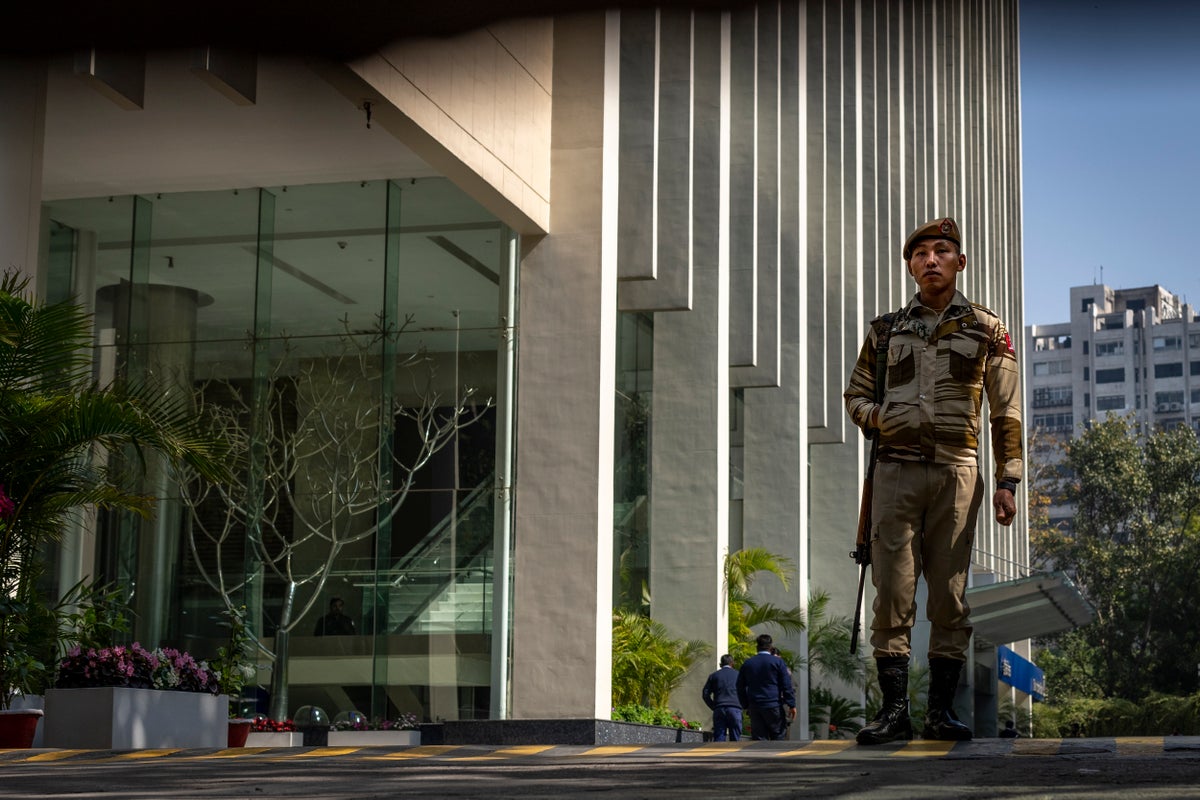
British foreign minister James Cleverly has raised the issue of tax raids on the BBC’s offices in India during a meeting with his Indian counterpart in Delhi.
Mr Cleverly is in India for a G20 meeting of foreign ministers that India is hosting, and held bilateral talks with Indian counterpart Subrahmanyam Jaishankar on Wednesday ahead of the main G20 programme on Thursday.
The three-day-long raids of BBC offices last month were described as “surveys” by the Indian tax authorities, and came just weeks after the British broadcaster aired a documentary that was critical of India’s prime minister Narendra Modi.
Indian news agency ANI reported that Mr Cleverly was “firmly told” that all entities operating in India “must comply fully with relevant laws and regulations”.
The Indian government had criticised the two-part BBC documentary, which assessed Mr Modi’s relationship with India’s Muslims, as a “propaganda piece”. It included a previously unseen UK government report finding Mr Modi “directly responsible” for the circumstances around the 2002 Gujarat religious riots, in which more than 1,000 people – many of them Muslims – were killed.
The BBC defended its work and said that its film adhered to the “highest editorial standards”. It said Mr Modi’s party was offered the chance to respond in the documentary but it declined.
Mr Cleverly said to ANI in an interview that though he had not watched the documentary, the BBC functions independently of the government.
“I didn't see documentary but I've seen reactions among the Indian diaspora in the UK and here in India. The BBC is an independent organisation and separate from government. I enjoy a strong personal relationship with Dr Jaishankar,” he said.
He added that he hoped that the relationship between the UK and India would grow stronger by the day.
In a separate statement on Twitter, Mr Jaishankar said that the two had “reviewed the progress of their relationship” and exchanged views on the global situation as well as the G20 agenda.
There was no mention of Mr Cleverly raising the issue of the BBC raids.
The government and Mr Modi’s ruling BJP party have previously said the tax raids were not related to the BBC’s documentary, yet at the same time a spokesperson said India was only open to organisations if they did not “spew venom”.
After the surveys were completed, the tax authorities accused the British broadcaster of tax evasion and non-compliance with its previous notices.
Last week the British government offered a limited defence of the broadcaster in parliament after an opposition party brought an urgent question on the matter – a full week after the raids began. Then, foreign office minister David Rutley said: "We stand up for the BBC.”







